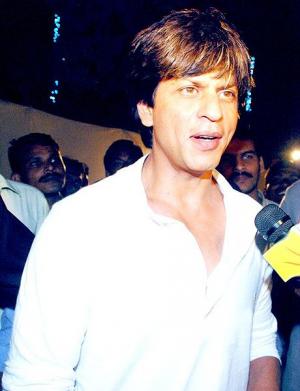
On the eve of India’s Independence Day, 14 August, U.S. immigration officials stopped Bollywood superstar Shah Rukh Khan upon arrival at Liberty International Airport in Newark, New Jersey.
The 44-year-old actor, who has appeared in over 70 movies and enjoys a wide fan following both within India and the Indian diaspora globally, had flown into the United States to attend an Indian Independence Day parade in Chicago.
Detaining the celebrated actor has raised the ire of fans in India. But it has also raised many questions regarding racial profiling and security issues at U.S. airports.
According to media reports, Khan was withheld between one and two hours, placed in a separate room with others waiting to enter the country, and had to prove his business in order to proceed to his destination. He was flagged down once his name surfaced on a computer list. His misplaced baggage further contributed to the delay.
Khan told the media that he initially felt angry, humiliated, and profiled. He felt insulted and nervous during his questioning, and was unable to convince the immigration officials of the purpose of his visit to the United States.
In trying to get someone to vouch for him—while fans queued up for autographs—he contacted a member of India’s parliament, who then got in touch with the Indian embassy. Only after this, did the immigration officials allow his release.
The reaction in India varied from sympathy to outrage against America’s infringement on Khan’s civil liberties and travel freedom.
“This is not entirely new,” says Vidya Pradhan, editor of the U.S.-based India Currents magazine. Continental Airlines [had] stopped and frisked former Indian President, A.P.J. Abdul Kalam at the Delhi airport not long ago. “I don’t think there’s malice here,” Pradhan concedes, “it is entirely possible that his name came up randomly on a list and that officials simply did their jobs. I am more shocked by the authorities’ lack of knowledge of noted international figures.”
When asked in a press briefing by a reporter if the detention had anything to do with Khans’ Muslim name, U.S. Assistant Secretary of State Philip J. Crowley said, “I wouldn't read anything into that.” Defending the administration, he cited Obama’s outreach to Muslims and his Cairo speech saying, “We want to have a close relationship with Muslims around the world.”
The irony goes beyond the fact that Khan was detained on his way to celebrate India’s Independence Day celebrations. He is also promoting his new film, “My Name is Khan.” The movie, set for release in February 2010, portrays Khan as a profiled, hassled Muslim in the wake of the 9-11 attacks, seeking out help from the U.S. president. Publicists couldn’t have constructed a better media event. But both the U.S. government and Khan claim this was no publicity stunt.
Khan has since returned to his home in Mumbai and held a press conference to clear the air. He is in better humor. “I don’t want to make this an evil issue,” he said in a CNN-IBN interview, nor does he seek an apology. Though tensions around the incident have subsided since last Friday, concerns for a traveler’s liberty in a secure America make Khan’s new film even timelier.
Though tensions around the incident have since subsided, it highlights the difficulty of balancing the protection of the rights of individuals and the security of America post 9/11. Perhaps Khan’s new film will shed some light and provide lessons on how to make things better.
About author: David Wolfford is a freelance writer and a teacher of government and politics in Cincinnati, Ohio.
